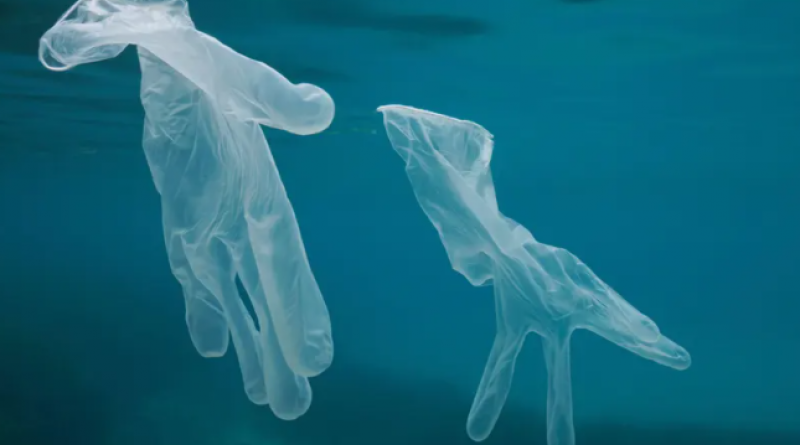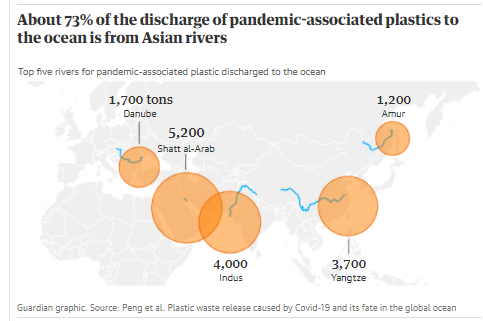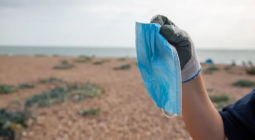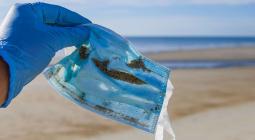About 26,000 tonnes of plastic Covid waste pollutes world’s oceans – study

Increased demand for PPE has put pressure on an already out-of-control global problem, report finds
Plastic waste from the Covid-19 pandemic weighing 25,900 tonnes, equivalent to more than 2,000 double decker buses, has leaked into the ocean, research has revealed.
The mismanaged plastic waste, consisting of personal protective equipment such as masks and gloves, vastly exceeded the capability of countries to process it properly, researchers said.
Since the beginning of the pandemic, an estimated 8.4m tonnes of plastic waste has been generated from 193 countries, according to the report, published on Monday.
“The Covid-19 pandemic has led to an increased demand for single-use plastics that intensifies pressure on an already out-of-control global plastic waste problem,” said Yiming Peng and Peipei Wu from Nanjing University, the authors of Magnitude and impact of pandemic-associated plastic waste published in the online journal PNAS.
“The released plastics can be transported over long distances in the ocean, encounter marine wildlife, and potentially lead to injury or even death,” they added.
A study in March presented the first case of a fish entrapped in a medical glove, encountered during a canal cleanup in Leiden, the Netherlands. In Brazil a PFF-2 protective mask was found in the stomach of a dead Magellanic penguin.
The scientists predicted that by the end of the century almost all pandemic-associated plastics will end up on either the seabed or on beaches.
The Chinese study found that 46% of the mismanaged plastic waste came from Asia, due to the high level of mask-wearing by individuals there, followed by Europe, 24%, and North and South America, 22%.

Peng and Wu said their research suggested 87.4% of the excess waste was from hospitals, rather than from individual use. PPE usage by individuals contributed only 7.6% of the total, while packaging and test kits accounted for 4.7% and 0.3% respectively.
“Most of the plastic is from medical waste generated by hospitals that dwarfs the contribution from personal protection equipment and online-shopping package material,” they wrote.
“This poses a long-lasting problem for the ocean environment and is mainly accumulated on beaches and coastal sediments.”
The thousands of tonnes of masks, gloves, testing kits and face visors which leached into the oceans from the start of the pandemic up to August this year, were transported in 369 major rivers.

Chief among these were Shatt al-Arab in south-eastern Iraq, which carried 5,200 tonnes of PPE waste to the ocean; the Indus river, which arises in western Tibet, carried 4,000 tonnes and the Yangtze river in China 3,700 tonnes. In Europe, the Danube carried the most plastic pandemic waste into the ocean: 1,700 tonnes.
The top 10 rivers accounted for 79% of pandemic plastic discharge, the top 20 for 91%, and the top 100 for 99%. About 73% of the discharge was from Asian rivers followed by European watercourses (11%), with minor contributions from other continents, the report said.
“These findings highlight the hotspot rivers and watersheds that require special attention in plastic waste management,” the authors said.
“We find a long-lasting impact of the pandemic-associated waste release in the global ocean. At the end of this century, the model suggests that almost all the pandemic-associated plastics end up in either the seabed (28.8%) or beaches (70.5%).”
The authors said the findings showed better medical waste management was needed in pandemic epicenters, especially in developing countries.
8 November 2021
The Guardian




